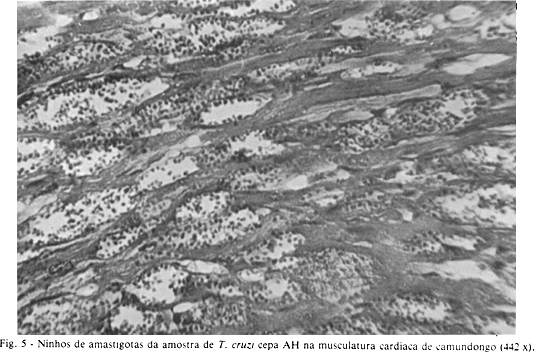Results of entomological and epidemiological investigations on the first autochthonous human case of American trypanosomiasis in the State of Acre, Brazil are presented. There are no synanthropic triatomine vectors in the area. Possibility of congenital or transfusional transmission is completely excluded. However, it is not possible to establish whether transmission was the result of house invasion of a silvatic triatomine species or contamined food. Two strains of Trypanosoma cruzi were isolated: one from humans which was called "Acre-Humana" (AH) and another from Rhodnius robustus collected in palm-trees (Attalea sp.) near the dwelling, called "Acre-Silvestre" (AS). There is a close relationship between the strains of T. cruzi studied, in both morphological and pathogenic aspects. These strains are pathogenic for baby mice, showing an infection rate of one hundred per cent. In both strains, the mice infection was very severe, with high lethality and parasitemia rates and a short prepatente period. In both strains during the acute infection phase, leishmanial forms were easily seen in tissue sections, specially in mice hearts and livers. Mice which recovered from infection with the AH and AS strain had a high resistence against reinoculations with the Y strain of T. cruzi. AH and AS strains were easily cultivated in blood-agar medium and Warren's liquid medium and infected six species of triatomine tested. The results confirm once again the existence of natural focci of American trypanosomiasis in the area.
Trypanosomiasis; Trypanosoma cruzi; Rhodnius robustus; Triatomidae; Disease reservoirs








